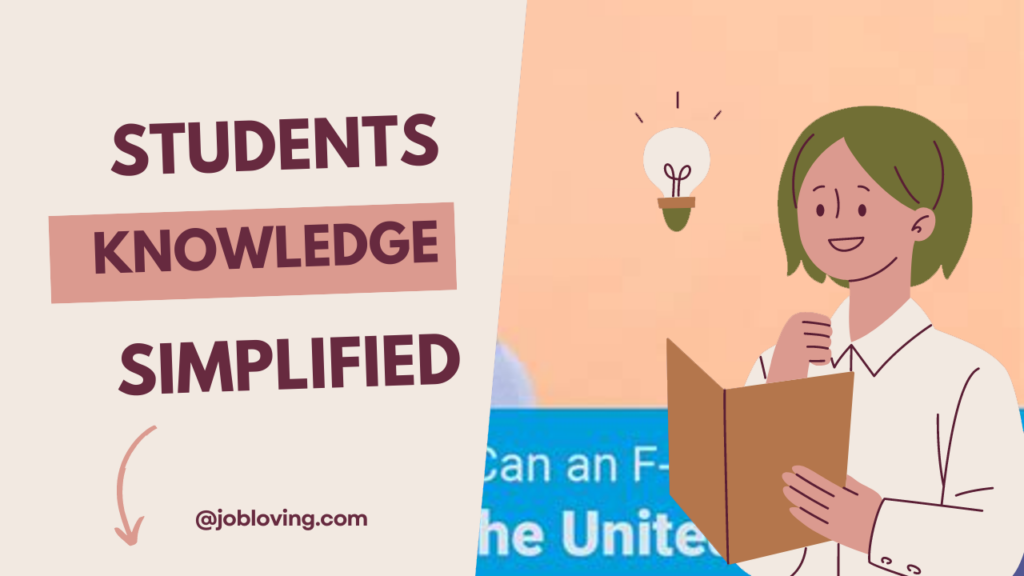How Long Can F1 Students Stay in the U.S. Without Attending School?
If you’re an F-1 student navigating your way through the U.S. education system, you may have found yourself pondering the million-dollar question: *just how long can I stay in the U.S. without attending school?* Let’s dive into the complexities of the F-1 visa and understand the totality of its regulations and your options!
The Basic Rules: After Graduation
Once you’ve successfully completed your academic program in the U.S., you are granted a grace period of up to 60 days to remain in the country. During this time, you are not permitted to work. So, whether you’re dreaming about your next adventure or contemplating your future, this grace period is an important timeframe to consider. For F-1 students, here’s what you need to keep in mind:
- 60 Days Grace Period: F-1 students may remain in the U.S. for 60 days following program completion.
- No Work during Grace Period: You can’t work during this 60-day window. It’s a time for rest, reflection, and planning your next steps!
The Situation if Things Don’t Go as Planned
But what if you don’t complete your program? Don’t panic just yet. In such scenarios, the stakes get a little higher. Without completion of your academic program, you might be granted only 15 days to stay, provided you obtain approval from your Designated School Official (DSO). Here’s a brief look:
- If you do not complete your program: You may stay for only 15 days.
- Need DSO Approval: This is crucial, as unauthorized overstay can lead to severe immigration consequences.
Different Student Visa Categories
It’s critical to note that the regulations you face depend not only on your status but also on the type of visa you hold. Here’s a little breakdown of these categories:
- M-1 visa holders: These vocational students must vacate the U.S. within 30 days post-program completion.
- J-1 visa holders: In this case, the duration of stay varies significantly based on the program regulations, but generally stays might also be capped at 30 days post-program completion.
Optional Practical Training (OPT)
If you’re an F-1 student, one of the best parts of your academic journey might be the Optional Practical Training (OPT). Upon graduation, you may apply for this opportunity, allowing you to work in your field of study for up to 12 months. Some key pivots to keep in mind:
- Timely Application: You must apply before your graduation, ensuring all deadlines are met!
- Specific Working Conditions: The work must be directly related to your major field of study.
Job Opportunities Post Graduation
On the horizon post your student life, if you’re considering ways to extend your stay legally, options do abound!
- Immigration through Employment: An H-1B visa may allow you to extend your stay in the U.S. for an initial three years, with a potential for an additional three-year renewal. This visa can serve as a pathway toward permanent residency.
- Family-Based Residency: Having relatives who are U.S. citizens or permanent residents can be helpful. Family ties can lead to various forms of sponsorship for a green card.
- Adjustment of Status: This path allows F-1 holders to transition to immigrant status if eligible.
- Asylum Options: If you fear persecution upon returning to your home country, seeking asylum is a complex but potential route.
- Green Card Lottery: Diverse visa programs like the Diversity Visa Lottery can offer avenues to settle permanently.
Maintaining Your Status
While navigating the intricate maze of U.S. immigration regulations, it’s essential to maintain your student status. F-1 students must abide by specific rules to prevent complications:
- Full-Time Enrollment: To keep your F-1 status intact, you must maintain a full-time course load.
- Engagement with DSO: Stay in touch with your DSO for updates on your status, program needs, and any required changes.
- Documentation is Key: Keep clear records of your communications with DSOs, as this will aid in navigating your status.
Visas and Overstay Implications
Overstaying an F-1 visa is a slippery slope. Immigration laws are stringent, and ignoring the rules can lead to unfavorable outcomes:
- Real Risks of Overstaying: Overstaying can bar you from re-entering the U.S. A big no-no!
- Employment Missteps: Unauthorized work could have immediate repercussions, including deportation.
- Legal Implications: Stricter regulations do not favor personal circumstances; the rules are clear-cut, and adherence is necessary.
Conclusion: Know Your Rights and Responsibilities
To wrap it up, knowing how long you can stay in the U.S. as an F-1 student without attending school is crucial not just for your academic journey, but for future opportunities and legal safety. Stay informed, stay compliant, and enjoy the incredible experiences the U.S. educational landscape has to offer! Your F-1 visa is an opportunity—a leap into a world of knowledge, cultural exchange, and, yes, the promise of an adventuresome future. Embrace it!

